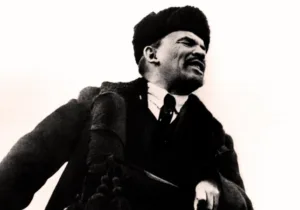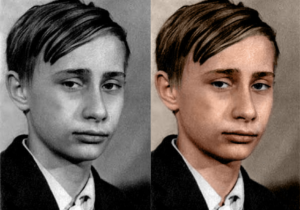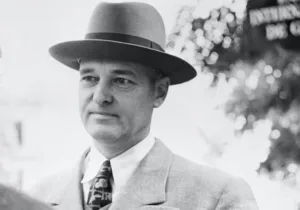Helmut Kohl will rightly be forever recalled as Germany’s longest serving chancellor since Bismarck, as Reagan’s stalwart ally backing the placement of intermediate range American missiles in Germany that helped win the Cold War, and as the unifier of a divided Germany.
Not charismatic and verging on obese, Kohl was stolid and reassuring during often electrifying episodes when the world was transformed. Less appreciated was that he was also a Catholic intellectual with a PhD in political science and history whose statecraft was guided by his notion of a unified Germany within a larger democratic and Christian Europe.
Kohl is iconically recalled at Reagan’s side in West Berlin when the President demanded that Gorbachev tear down the Berlin Wall. Less recalled but no less important was Kohl’s relationship with Pope John Paul II and also Pope Benedict XVI.
When Kohl first went to East Germany after the Berlin Wall’s sudden collapse, he appeared before exultant thousands at the ruins of Dresden’s once great cathedral destroyed in WWII. Worried that the crowd might sing “Deutschland Uber Alles,” he summoned a choirmaster to instead lead in the hymn “Now Thank We All Our God.”
For a quarter century, Kohl, a former altar boy, led the Christian Democratic Union, the right of center party founded by West German patriarch Konrad Adenauer. The CDU aspired to offer a cohesive political theology appealing to Catholics, Protestants, and the religiously ambivalent who still appreciated Christianity’s formative social role. For Kohl, Christian Democracy offered a legitimizing alternative spiritual narrative to the ideologies of Nazism and East German communism.
Like Adenauer, who was also Catholic, Kohl came from southwest Germany close to the French border. And like Adenauer he linked Germany to its ancient Christian and Catholic past, rooting it in wider Western Civilization against modern ideologies and against the destabilizing old Germany that sought expansion and neutrality between East and West.
Kohl was raised by a pious Catholic family who was patriotic and would decline to join the Nazi Party. His father served in both WWI and WWII and, Kohl recalled, returned from Poland predicting Germany would have to atone for its sins. Kohl’s older brother was killed in WWII. In later politics Kohl would emphasize he had been too young for complicity with the Third Reich. But as a 15 year old, he was forced to serve in the Hitler Youth and had helped remove bodies from urban rubble, which surely shaped his future national perspective. His parents became active in Adenauer’s CDU as the new West Germany was forming. The CDU stressed Catholic-Protestant commonality, and Kohl recalled his pious Catholic mother had enjoyed Protestant radio preachers, while he himself married a Protestant, with whom he raised two sons in Catholicism.
A Catholic priest who taught him Catholic social teaching encouraged Kohl as a teenager to join the CDU, which he later explained appealed to him with its program based on the “Christian image of the human” and the Western concept of the “free and responsible individual.” Socialism and centralization, he learned, were at odds with Catholicism. He believed Christianity, or at least parts of it, had resisted Naziism, which was “apostasy from God,” and offered cultural continuity plus an ethos of natural law and humanity against atheism. Kohl modeled himself on and admired Adenauer, citing the centrality of his Christianity.
As explained in Christian Wicke’s 2015 book, Helmut Kohl’s Quest for Normality, throughout his political career Kohl emphasized that Christian Democracy rejects Utopianism and understands that human dignity is based on “Godlikeness.” He stressed that Europe was supremely a spiritual entity defined by its Christian heritage. He warned against rising secularism, and he opposed an overly centralized Europe, for which he critiqued his successors, that ignored Catholic teaching about subsidiarity. Nations have their own providential role and unique cultures that can’t be entirely subsumed under a superstate, he appreciated.
Despite his appeals to a Christian ethos in national life, Kohl was not always personally a model Catholic. His estranged sons would later publicly chastise him for neglecting his family in favor of the CDU and Germany. His wife committed suicide after a long illness, and one son claimed his father had commenced an affair with a woman admirer decades younger than he, whom he would later marry. In recent years he was confined to a wheel chair and lacked some speech ability. He had been forced from public life amid financial scandal for his party, and renounced by the successor he had anointed, Angela Merkel.
Yet the tragedy of Kohl’s decline does not diminish the greatness of his accomplishments or the vision of Christian Democracy upon which they were based. “There is only one place for us in the world: at the side of the free nations,” he said of Germany.
Kohl witnessed the horrors of Naziism and WWII, while successfully navigating the Cold War to peaceful conclusion. He was committed to democracy, ordered liberty, and human rights based on God-ordained human dignity. His politics ultimately were based on the transcendent. He championed the West as a spiritual project. Who will argue this case today?






